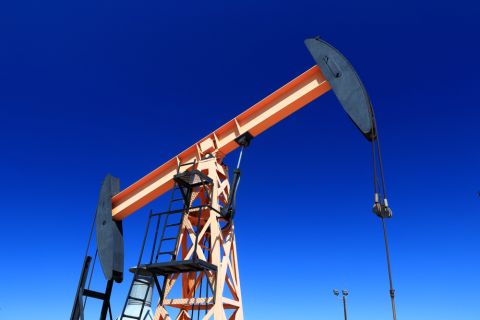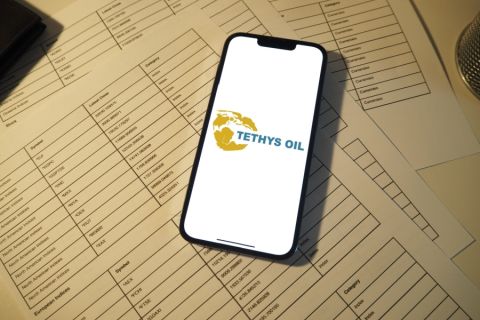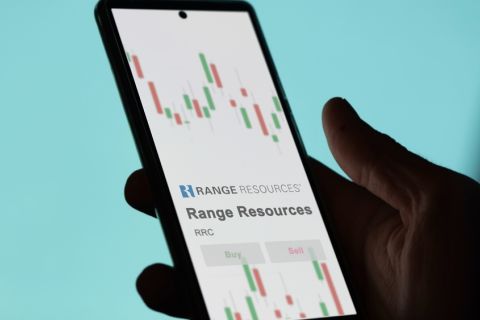The decision by Quicksilver Resources Inc. to sell a 25% working interest in its Barnett Shale oil and gas assets for about $485 million to a subsidiary of Tokyo Gas Co Inc. is a natural fit for both companies, according to company officials and analysts.
The agreement, which was announced last week and is expected to close by the end of the month, marks the first time Tokyo Gas has agreed to develop shale gas in the U.S. Tokyo Gas is the gas distribution company to Tokyo and surrounding municipalities.
The acreage in the agreement with Qiucksilver Shale totals about 130,000 acres, with proved reserves of about 1.2 trillion cubic feet (Tcf) of natural gas. The current net production is around 275 million cubic feet equivalent per day.
Tokyo Gas said its share of the gas production will be marketed in the U.S. and should be about 0.35 to 0.5 million tons per year in terms of LNG volume. Tokyo Gas said the deal was part of a long-term plan to secure additional supplies of natural gas and said it will continue to look for overseas partners to meet that goal and to diversify its upstream business.
David Erdman, manager of investor relations at Quicksilver, called the agreement a win-win for both companies. “We are providing them with a long-term supply of natural gas from a reliable source,” he said.
In return, Quicksilver can reduce its debt load and gets a partner that understands the long-term value of natural gas. Production from the Barnett is fed into a mature pipeline system with multiple delivery points for both natural gas and liquids from the field. Quicksilver will remain as operator of the assets. Future development spending will be shared in proportion to each party's working interest.
Quicksilver, based in Fort Worth, Texas, has struggled recently as natural gas prices remain lower than historical averages. About 76% of the company’s proven reserves base is natural gas and 72% of its production revenue comes from natural gas. Its debt level was $2.063 billion, financing about $1.381 billion in assets at the end of 2012, the last period for which financial statements are available.
The deal marks an important step in the company’s efforts to reduce its debt, Erdman said. “It does not get us completely to where we want to be, but it is a significant step along the way.” Quicksilver’s intermediate-term goal is to have about $1 in debt for every proved, developed producing barrel of reserve, or about $1.29 billion, he said.
Quicksilver has other possibilities to reduce debt. It is in negotiations to enter a joint venture with another company – as yet unidentified – with its Horn River assets in western Canada. It could also consider a hodge-podge sale of its noncore assets in the Barnett.
Quicksilver could also sell some of its Montana assets. Given that the company did not make any capital expenditures in the region in 2012 and has no plans to do so in 2013, these assets could be considered noncore, he said. Finally, Quicksilver could enter into a joint venture to develop 167,000 net acres in Sand Wash Basin in northwest Colorado.
The deal with Tokyo Gas goes back to November 2011, when representatives from the company started meeting with Qiucksilver to discuss options for getting additional supplies of natural gas. The Fukushima earthquake, tsunami and nuclear disaster had occurred earlier that year and many public utilities in Japan were looking for additional supplies of alternative fuel sources.
Natural gas seemed like a good alternative, and Quicksilver gave Tokyo Gas a tour of the company’s Alliance Field north of Fort Worth, Texas. By September 2012, Tokyo Gas representatives had done enough research on the U.S. natural gas market that it decided that Quicksilver would make a good partner, Erdman said.
The two companies began negotiations in earnest for a joint venture, and by November 2012 drafted a memorandum of understanding outlining the broad terms of an ultimate agreement. With natural gas prices still below historical averages, now is an optimal time for Asian players to secure additional supply, Erdman said.
The agreement with Tokyo Gas gives the company the option to take physical delivery of the product for transport to its port or to build a synthetic swap with the production to hedge purchase from a closer source.
In addition, Tokyo Gas signed a separate 20-yar agreement with Sumitomo Corp. and Dominion to export up to 1.4 million metric tons of natural gas per year from Dominion’s Cove Point LNG export facility at prices indexed to Henry Hub.
Analysts generally applauded the deal, saying it was at a favorable price and an important part of the company’s strategy to reduce debt. The deal should be accretive to expected cash flow per shares by about 6%, according to an analysis from KeyBanc Capital Markets.
That said, KeyBanc Capital Markets’ David Deckelbaum maintained a “Hold” rating on the company’s shares, an assessment that indicates it expects the company’s share price to perform in line with general market indices during the next six to 12 months.
The price for the transaction is an attractive one for Quicksilver, according to KeyBanc: $7,851 per flowing thousand cubic feet equivalent (Mcfe) per day, $1.63 per Mcfe of proved reserves, and about $2,600 per acre when adjusted for production. These values compare favorable for the previous three-year average in the Barnet, the report stated.
“We note that with the 12-month natural gas strip price of $4.10 per Mcf up 9% last month, 14% year to date and 45% year–over-year, we may be witnessing an mergence of appetite for gas value deals given a tightening in supply/demand and declining domestic production,” the report states.
For KeyBanc, the sale is a good step toward Quicksilver’s efforts to reduce debts, but will not entirely eliminate all of the market’s concerns about the company’s leverage. “It remains to be seen what KWK’s deleveraging plan will ultimately look like,” the report states.
The company will likely use the proceeds to pay $438 million of 8.25% notes due in 2015 and the deal may pave the way for future deals with Tokyo Gas, the report stated. Once the deal closes, Deckelbaum estimates the company will have about $1.6 billion in debt.
Recommended Reading
US Raises Crude Production Growth Forecast for 2024
2024-03-12 - U.S. crude oil production will rise by 260,000 bbl/d to 13.19 MMbbl/d this year, the EIA said in its Short-Term Energy Outlook.
To Dawson: EOG, SM Energy, More Aim to Push Midland Heat Map North
2024-02-22 - SM Energy joined Birch Operations, EOG Resources and Callon Petroleum in applying the newest D&C intel to areas north of Midland and Martin counties.
Tethys Oil Releases March Production Results
2024-04-17 - Tethys Oil said the official selling price of its Oman Export Blend oil was $78.75/bbl.
CEO: Continental Adds Midland Basin Acreage, Explores Woodford, Barnett
2024-04-11 - Continental Resources is adding leases in Midland and Ector counties, Texas, as the private E&P hunts for drilling locations to explore. Continental is also testing deeper Barnett and Woodford intervals across its Permian footprint, CEO Doug Lawler said in an exclusive interview.
Range Resources Expecting Production Increase in 4Q Production Results
2024-02-08 - Range Resources reports settlement gains from 2020 North Louisiana asset sale.




